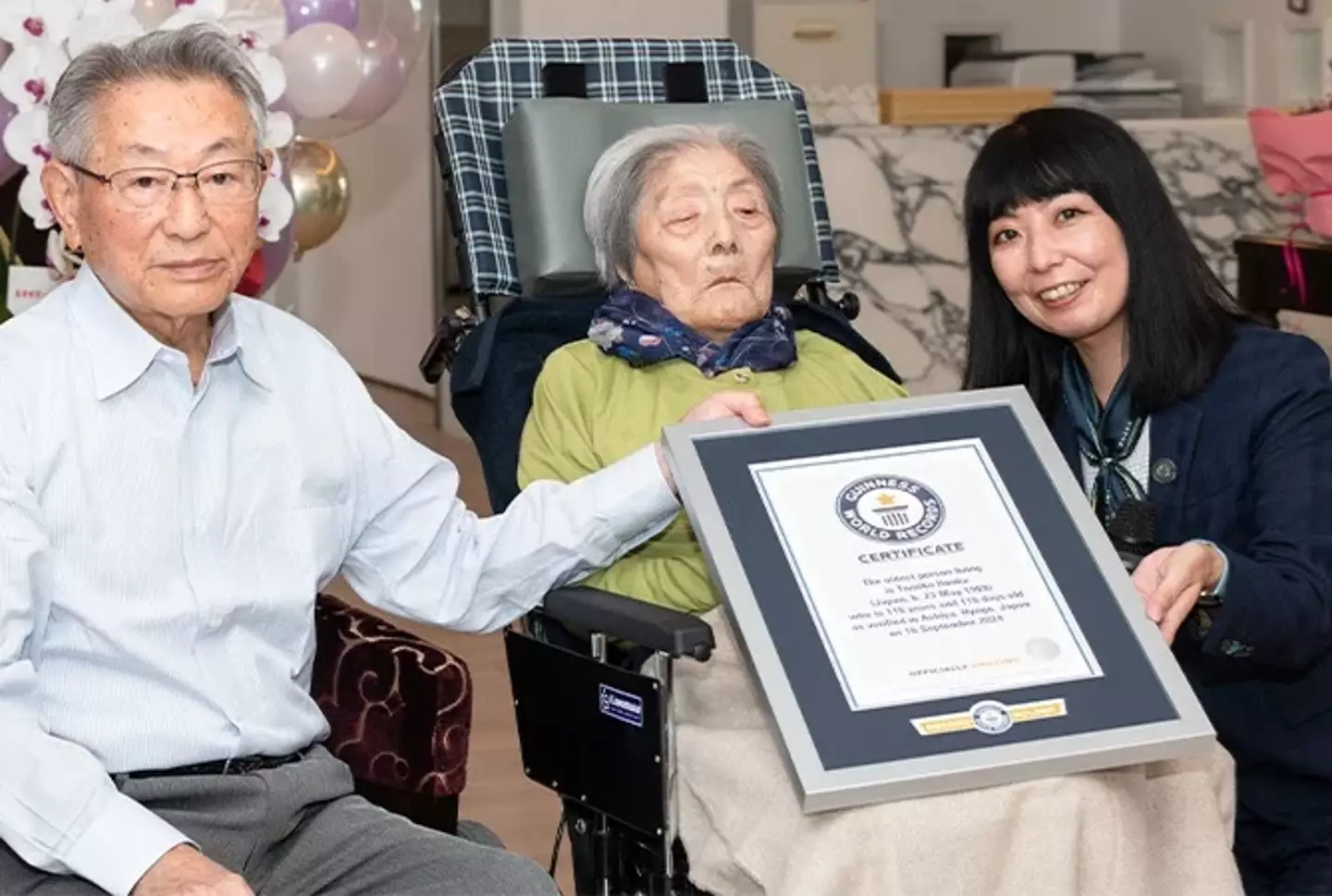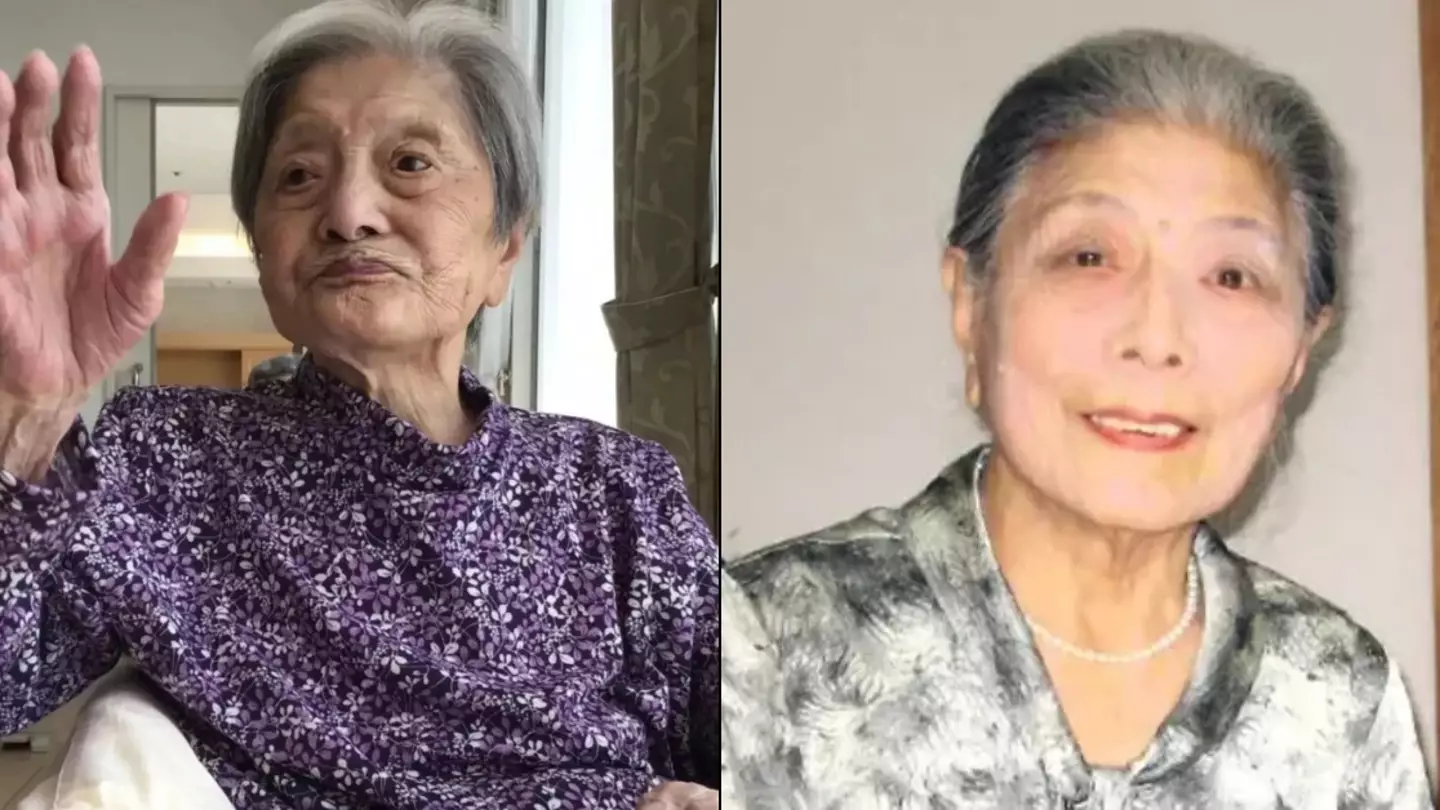Tomiko Itooka made it to 116 and said there were two reasons for living so long
Japanese woman Tomiko Itooka, who held the title of the world’s oldest person in the final months of her life, passed away at the age of 116. Born in May 1908, she lived through much of the 20th century and into the 21st. Itooka died in a nursing home in Ashiya, Hyogo Prefecture, on December 29, 2024. She had been recognized as the world’s oldest person for a brief period after the previous record-holder, Maria Branyas Morera of Spain, passed away in August at the age of 117.
The mayor of Ashiya expressed gratitude for the inspiration Itooka provided to the community, stating in a statement, “Ms. Itooka gave us great courage and hope throughout her long life. I would like to express my gratitude once again.”
Itooka had a fulfilling family life, raising four children—two daughters and two sons—with her husband, Kenji Itooka, who passed away in 1979 after 51 years of marriage. She is survived by one son, one daughter, and five grandchildren.

A Life Full of Adventure
Even in her later years, Itooka maintained an adventurous spirit. She was known for being an enthusiastic hiker and had even climbed Mount Ontake twice during her younger years, demonstrating her passion for physical activity and exploration.
Her longevity was a subject of much curiosity, and she attributed her remarkable lifespan to two specific habits: eating bananas and drinking Calpis, a traditional Japanese dairy drink. In fact, these two simple elements were her “secrets” to living a long and healthy life, according to her. So, if you’re hoping for a long life, you might want to follow her example and incorporate bananas and Calpis into your daily routine.
A New Record-holder
With Tomiko Itooka’s passing, the title of the world’s oldest person has now been passed to Inah Canabarro Lucas, a Brazilian nun born 16 days after Itooka. Lucas is now recognized as the world’s oldest living person. The fascination surrounding those who reach extreme old age often includes speculation about their diets, habits, and lifestyle choices. In the case of Itooka, it was bananas and Calpis, while her predecessor, Morera, credited eating a pot of yogurt every day as her secret.

Longevity Around the World
In the realm of the world’s oldest living men, Joao Marinho Neto of Brazil holds the title at the age of 112. Neto has held this distinction since the death of John Tinniswood from Liverpool, who passed away in November 2024 at the age of 112. Tinniswood believed that his long life was primarily due to luck, noting that “either you live long or you live short, and you can’t do much about it.” However, he also mentioned the importance of “moderation” in his daily routine, which he believed contributed to his longevity. Similarly, Morera and Tinniswood both shared the sentiment that moderation in diet and lifestyle played a key role in their long lives.
In contrast, Emma Morano, the previous world record-holder for the oldest person, advised a rather unique diet of three eggs a day, two of them raw. Her advice was unconventional but followed by many who believed in the power of this peculiar food regimen.
The Fascination of Longevity
Whenever someone reaches extreme old age, people are naturally fascinated by the potential secrets behind their longevity. In the cases of Itooka, Morera, and others, it is often the simplicity of their lifestyles, coupled with unique habits, that captivate the world. The continued study of these extraordinary lives offers insights into how certain foods, routines, and genetics might influence how long we live. While we may not all live to 116 or 117, the legacies of these remarkable individuals continue to inspire others to live life to the fullest.

